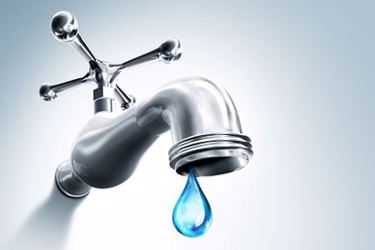Water Security: The Biggest Challenge
By Nidal Hilal

Fresh water is a vital resource for human life. However, population growth and enhanced living standards, together with the expansion of industrial and agricultural activities, are creating unprecedented demands on clean water supplies all over the world.
Less than 0.5 percent of the water that covers 70 percent of our planet is fit for human consumption; the oceans account for 98 percent of all the water on Earth, and more than 1.5 percent of our water is locked up in ice caps and glaciers. Yet, in developed countries, we often take this most precious of natural resources for granted, despite the many campaigns we are exposed to reminding us that one in ten of the world’s population has no access to safe drinking water. If you don’t have clean water, you can’t grow healthy food and you’re more likely to be sick and unable to work or go to school, which means you are more likely to be trapped in poverty, with all the societal and security issues that poverty brings. Globally, one in five deaths of children under five is due to dirty water. Then factor in that the world's population tripled in the 20th century and is expected to increase by another 40-50 percent in the next 50 years; that industry and agriculture are placing unprecedented demands on clean water supplies, and that there isn't any more fresh water in the world today than there was a million years ago.
As water cannot be replaced in the same way that alternative fuel sources can replace fossil fuels, we urgently need to find new sources of water if we are to mitigate the impacts that the lack of clean water has on humanity. Tapping the seas is a popular option. Desalination of seawater is increasingly seen as the most practical solution and — for many countries — the only possible way to provide fresh water to meet increased demand due to population growth, expanding urbanization and industry. This is clearly reflected in the rapid development of water desalination technologies and their commercial exploitation in the last decades.
However, despite the significant advances these technologies have brought about, and the successes they have made in reducing energy requirements (mainly in membrane-based processes), desalination remains an energy-intensive process that contributes to greenhouse gas emissions and subsequent impacts related to climate change. In countries across the Middle East and North Africa the situation is especially problematic in terms of experience, challenging sea water quality (especially in the Gulf) and energy use — the ready availability and limited cost of fossil fuels in these regions makes thermal-based processes more attractive. These energy-intensive processes dominate the desalination market, so there is tremendous interest in identifying breakthrough solutions that address water security and sustainability at a lower cost, while also being more environmentally friendly. That’s the challenge that faces us. How can we provide enough clean, safe water to meet humanity’s ever-growing needs, and do so with lower energy requirements, greenhouse gas emissions, and adverse climate impacts? There is an urgent need to undertake fundamental research in the water sciences to advance the development of water technologies so that we can deliver innovative solutions to address water security and the sustainability of finite water resources.
Our objective should be to explore the development of new and emerging low-energy and renewable energy-driven desalination technologies, targeting a reduction in the specific energy consumption of seawater desalination and developing more sustainable desalination processes that are less dependent on conventional energy sources and that, consequently, are more environmentally friendly. But there are so many other questions we need to find answers to. What are the novel technologies for water desalination and reuse that we need to develop and exploit? How can we optimize and hybridize desalination and reuse technologies to deliver enhanced performance? How do we promote (and incentivize?) water technologies for sustainable urban, agricultural, and industrial applications? What research into urban and natural hydrologic systems is needed to improve our understanding and management of water resources? And how do we ensure that the results of this research reach the widest possible audience so that we can begin to address these challenges on a global scale?
If we can answer some of these questions and find a way to provide clean, safe water to everyone, irrespective of geographic and economic constraints, then we will, without doubt, improve the health, wellbeing, and prosperity of billions of people.
Water security is the biggest challenge we face.
 Nidal Hilal, DSc, PhD, CEng, FIChemE, FLSW, is a Professor of Engineering and Director of the NYUAD Water Research Center at NYU Abu Dhabi, United Arab Emirates, and Founding Director of CWATER at Swansea University, United Kingdom.
Nidal Hilal, DSc, PhD, CEng, FIChemE, FLSW, is a Professor of Engineering and Director of the NYUAD Water Research Center at NYU Abu Dhabi, United Arab Emirates, and Founding Director of CWATER at Swansea University, United Kingdom.
Professor Nidal Hilal will be speaking at ‘In the Future, How will we Live?’, a programme of events hosted by the UK Pavilion at Expo 2020 Dubai from 11-18th January. As part of the programme, he will be participating in a series of online sessions discussing how the latest innovations in renewable energy, resources, and smart city technology can drive solutions to the global challenges set to define a generation. To attend the Summit sessions, please register online.
All content from UK at Expo 2020 Dubai events can be accessed through our new Online Pavilion, which will be updated throughout the show. Find out more about the UK’s programme at Expo 2020 Dubai.
